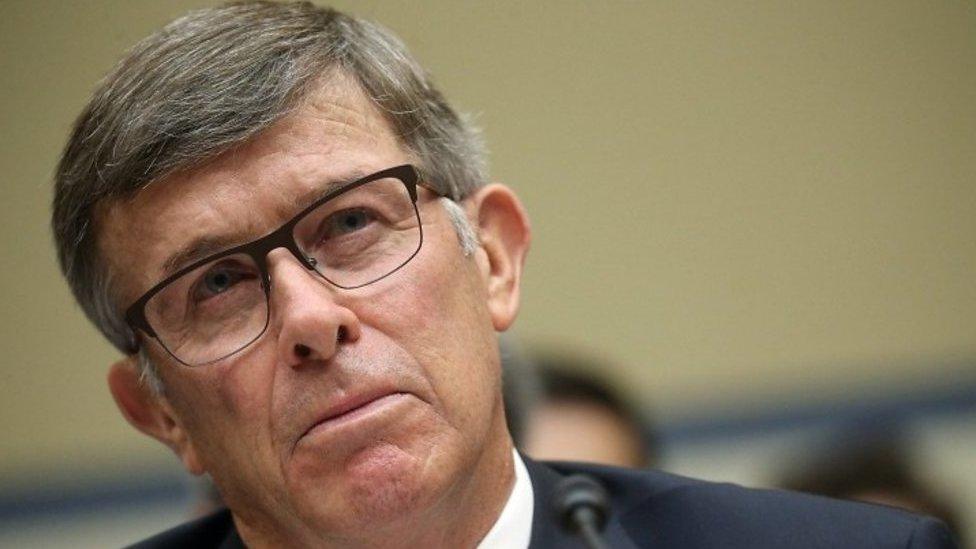Who listens in on a president's phone call?
- Published
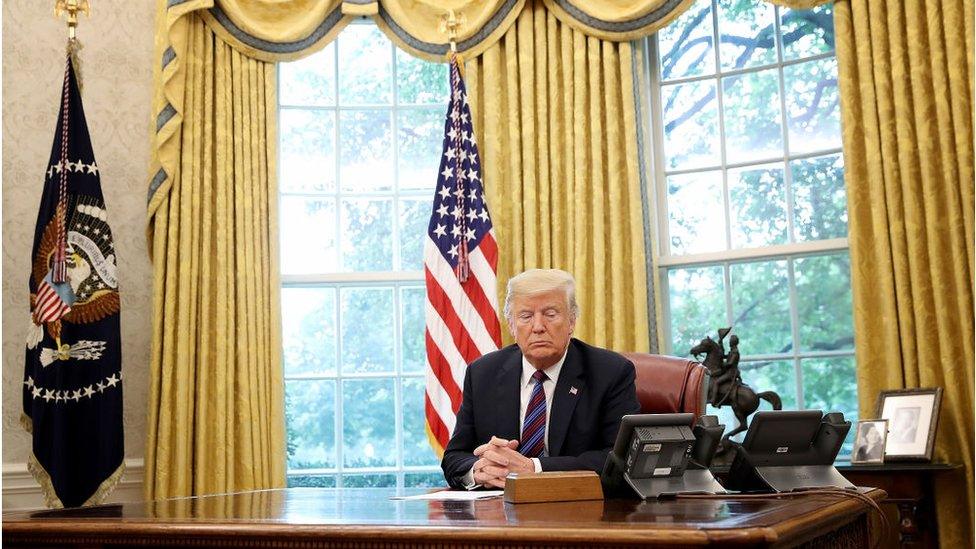
A whistleblower's complaint alleging that records of a call made by President Donald Trump was handled in an unusually secretive way has shone a spotlight on how such calls are monitored - and how they can be hidden.
The whistleblower, a US intelligence official, believed that the transcript of the call between Mr Trump and Ukrainian leader Volodymyr Zelensky was kept in a secret electronic space not for national-security reasons - but for political purposes.
The rough transcript of the call, according to the complaint, was first classified as secret and later top-secret, ensuring that only those with the highest clearances would be able to read it.
This was a red flag, according to the whistleblower, as it showed that White House officials were not only aware of the politically sensitive nature of the call but were trying to hide this information from others in the US government.
Mr Trump's critics say the call was an attempt to convince Ukraine's leader to investigate his rival, Vice-President Joe Biden, to further the president's own political goals, and that White House aides were trying to cover his tracks.
What we know about Biden-Ukraine corruption claims
President Trump and his aides deny the allegations, and say there was "nothing different" about the handling of the transcript of the phone call or where it was stored electronically.
So what's the normal practice?
Who listens to the call?
Traditionally, officials from the US national security council (NSC) brief the president before a call with a foreign leader. Then the briefers sit in the Oval Office with the president while he speaks on the phone with the foreign leader. "At least two members of the NSC are usually present," according to USA Today, external.
There will also be officials sitting in a secure room in another part of the White House, listening to the president's call and taking notes. Their notes are known as a "memorandum of telephone conversation", and like many things in Washington it has an abbreviation: "memcon".
The president's calls with foreign leaders are also transcribed by computers. Afterwards, as former White House officials explain, the human note takers compare their impressions with an electronic version of the call. The notes from the officials and from the computerised transcriptions are combined into one document. This transcript may not be perfect, but it is done as carefully as time and resources allow.
In the case of the president's phone call with Mr Zelensky, according to the whistleblower's complaint, about a dozen people were listening to their conversation.
Since Mr Trump came to office, briefings before a phone call can be hastily arranged and by people with varying levels of expertise, according to one former NSC official, who says they were sometimes asked to listen in on calls at the last minute.
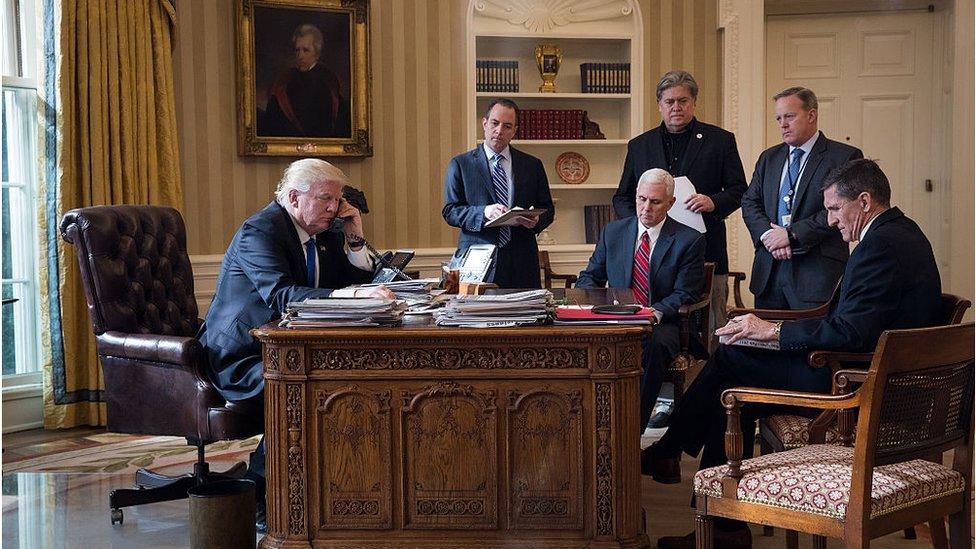
Mr Trump speaking on the phone with Russian President Vladimir Putin in 2017 as officials take notes
How is a transcript of a call classified as secret or top secret?
Officials who work in the executive secretary's office of the US national security council decide on the level of classification for the transcript of a call, explain former White House officials.
If the transcript contains information that could put national security or lives of individuals at risk, the transcript is classified as top secret and is kept in a protected area.
The Project on Middle East Democracy's Andrew Miller oversaw Egypt for the national security council during the Obama administration and became familiar with the process of classification. Miller says that he understands why some transcripts should be deemed top secret. But, he says, there was nothing in the call between Mr Trump and Mr Zelensky that rose to that level.
"I don't see what's in there that would justify it being top secret," says Mr Miller. "This had to be done for political reasons."

More on the Trump-Ukraine story

What happens if a transcript is stamped 'top secret'?
Classifying the transcript of a call as "top secret" means that only individuals in the US government with the highest level of security clearance can see the material.
As former officials explain, these transcripts are shared through a system known by an acronym, Jwics, which stands for Joint Worldwide Intelligence Communications System, a network that is used by people who work in the intelligence services.
'Trump didn't do anything wrong' - US citizens react
Frequently, though, the transcripts are stored in areas that are secret but not guarded with this extraordinary level of security.
Classifying a transcript as secret - but not top secret - means that officials can discuss the contents of the presidents' calls more easily with others who work in the government.
Was the security-classification system used in the proper manner in this case?
Mr Kudlow and other presidential advisers say the phone call itself was fine - and so was the handling of the transcript. They strongly disagree with the whistleblower's assessment. But others say the president's phone call and the secrecy surrounding the transcript demonstrated an abuse of presidential power.
"Security classifications are designed to protect lives," says Brett Bruen, a White House official who served in the Obama administration. "If all of a sudden, they become a means to protect the political standing of the president, it means we no longer have a national-security classification system that is credible."
Mr Miller agrees - he says that keeping a transcript of a phone call secret just because you want to protect the political prospects of your boss undermines the system.
Those who work at the White House swear an oath not to the president, he says, but to the US constitution: "Your primary loyalty should be to the country - not to the individual."
- Published26 September 2019
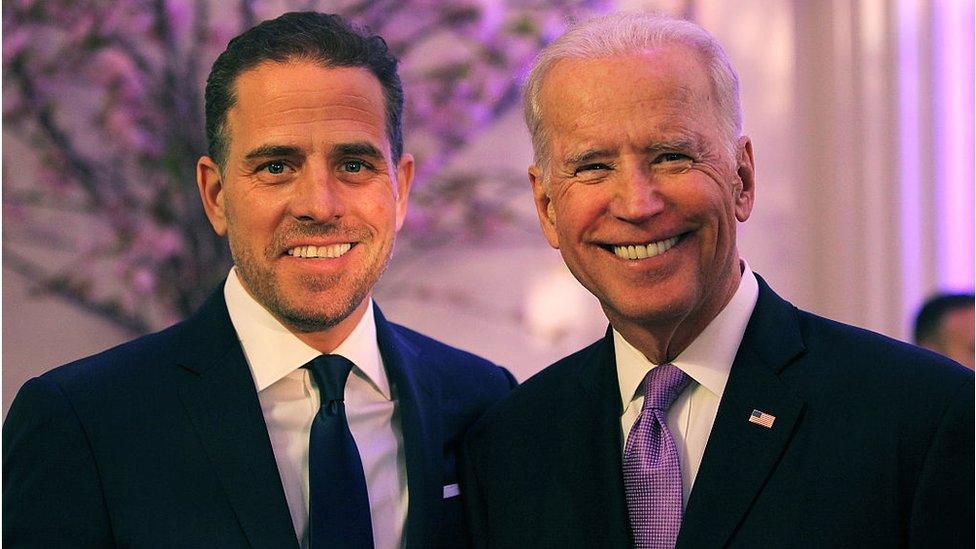
- Published5 February 2020
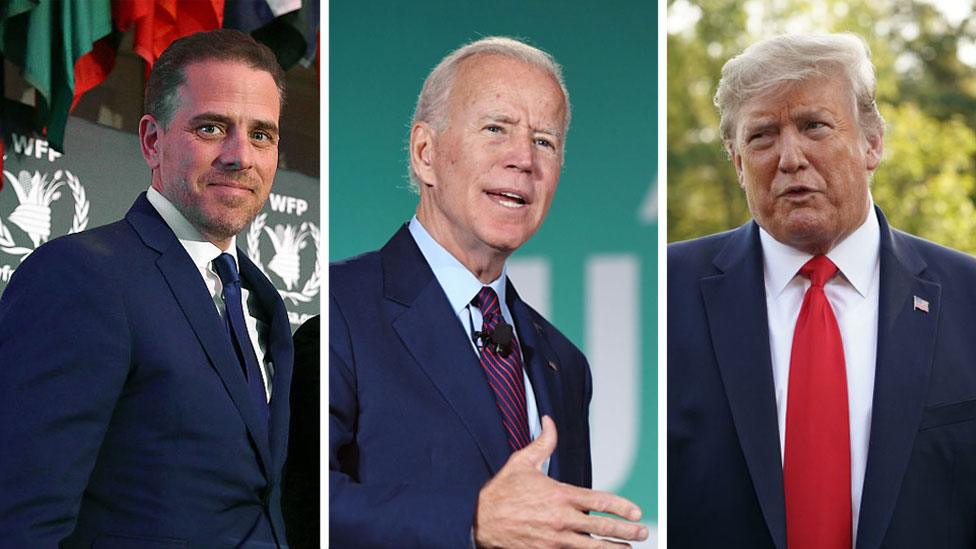
- Published24 September 2019
- Published25 September 2019
- Published27 September 2019
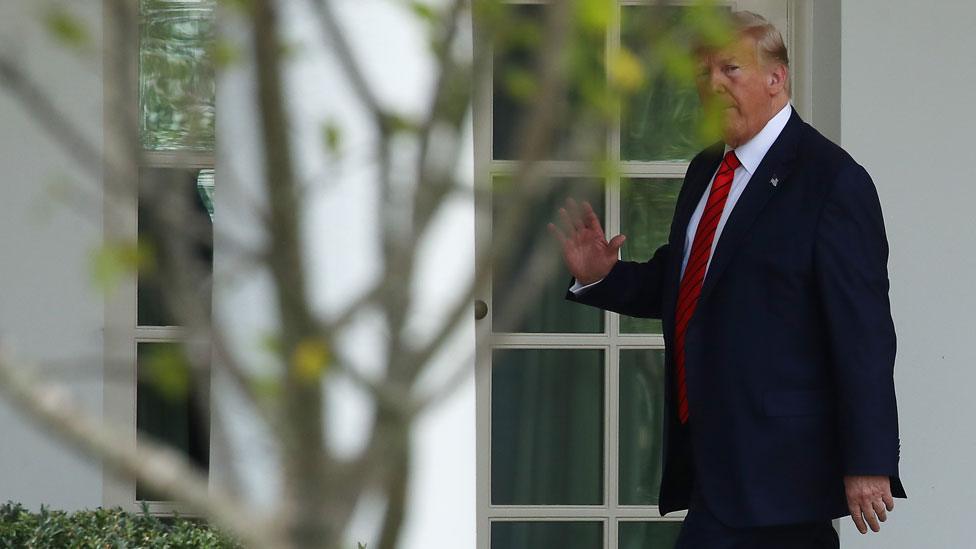
- Published26 September 2019
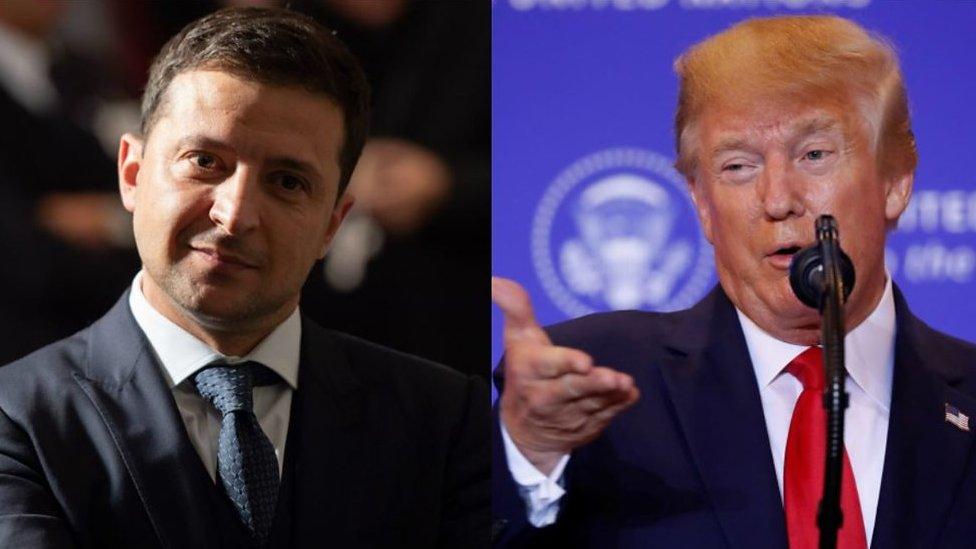
- Published26 September 2019
